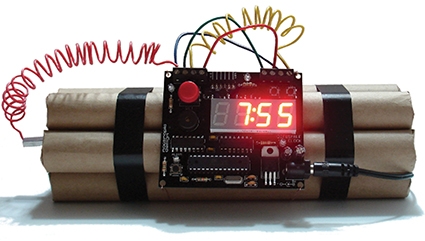Ticking Bombs
Op-Ed
While part of the Georgian political elite is busy discussing the return of ex-Premier Bidzina Ivanishvili to big politics, the other is trying to gather something like an oppositional coalition. At the same time, epochal changes are taking place in our geographical neighborhood: Armenians said goodbye to the Soviet ghost and brought a new political figure to lead the government. Although the remix of the ongoing colorful revolution in the streets of Yerevan has somehow overshadowed the transformation of another neighboring country – Kazakhstan, there’s no question that what President Nursultan Nazarbayev just did is perhaps equal to many revolutions, colorful and non, taken together.
President Nazarbayev finally agreed to the new route designed to carry special American cargo from the ports of Aktau and Kuryk to Afghanistan. America asked for the said route to start in Georgia, travel to Azerbaijan, then via the Caspian Sea to Kazakhstan, and on through Uzbekistan to arrive in Afghanistan. After signing this document of historical importance, international media started a discussion about Aktau, saying that it will automatically become a base for the Pentagon and its allies. Apparently, British destroyers and NATO Navy ships have become more active in the Black Sea in response to this event, and, most importantly, they will patrol the Black Sea waters on an ongoing basis. Kazakhstan’s decision once again proved to the Kremlin that in big politics, only interests matter and the friendship of Nazarbayev and Putin was only temporary.
In light of these events, the forgotten persona of Eduard Kokoity, the former leader of the occupational regime of Tskhinvali, came to the fore. Although his current debut was a mess of absurd accusations, aired on Tskhinvali and Vladikavkaz television, it is still important to pay attention to the demands he and other “collective Kokoitys” made.
The topic concerns the Truso Valley, which is in the area of Borjomi-Bakuriani and Akhalgori, Kokoity proclaim is their territory by historical right. While Official Tbilisi and the public have a much sharper reaction to the themes of Abkhazia than what’s going on in Tskhinvali and the South Ossetia region, in reality, the geopolitical, military, political, communicational and other aspects of the latter are much more significant and crucial for our country at the moment.
The agreement signed by President Nazarbayev once again demonstrated that in the geographical center of Georgia, just 35 km from Tbilisi and a few hundred meters from the vital Tbilisi-Poti highway and the railway, in very close proximity to the high voltage power lines, stands the occupational army. If needed, the latter could in a matter of minutes block the main highway and railways using tanks decorated with Ossetian flags, which would put into question not only the movement of cargo to Afghanistan, but the whole statehood of Georgia. Encouraging discussions about changing the Geneva format and starting direct negotiations with occupational regimes should be considered as an answer to the decision taken in Astana, as should the case of Archil Tatunashvili, which nearly served as the detonator that could have blown up new political order that is trying to establish itself at the southern borders of Russia.
By Zaza Jgarkava












